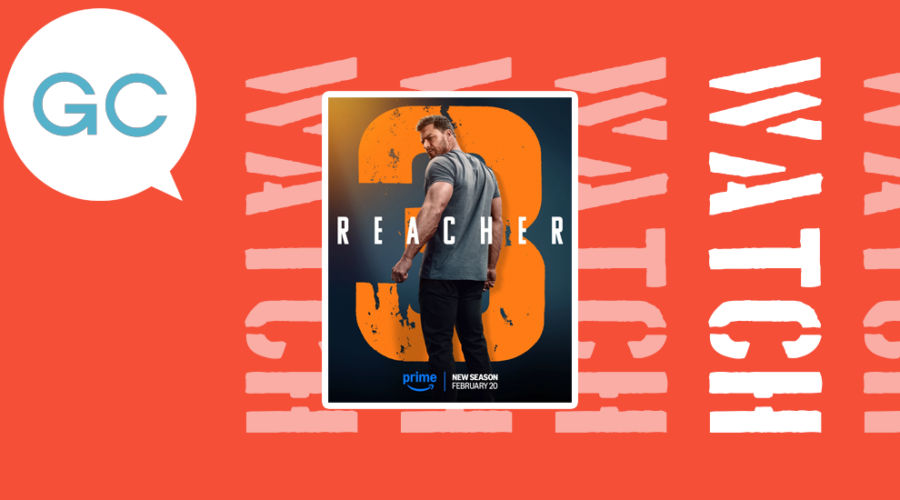When I find myself in times of trouble, Jack Reacher comes to me.
Well, in dreams he does, anyway. He usually puts his big arms around me and whispers something romantic such as, “Unfuck yourself.” Or, “Harden the fuck up.” (My ideas about romance may be slightly unusual.)
It’s hard to get the full measure of the third reasons of the hit show Reacher on Prime so far, as we are only on to the sixth episode of an eight-season run, but honestly, it’s been an example of great television so far.
A new friend recently told me that he never expected me to like a show like Reacher, what with my love of big words and complicated programs of mythical proportions such as True Detective and Ben Stiller’s Severance.
I do love complexity, and I despise anti-intellectualism in all of its forms, and also I despise it when snobs dismiss action shows. Action is fun, and action is also cathartic. It flushes the brain clean.
And Reacher, as always, is needed, very much needed. And not just because star Alan Ritchson recently dressed down shady former politician Matt Gaetz, causing the latter to have a hysterical public fit, his ego seemingly as fragile as his villainous forehead is big (as a member of the big forehead club, I must point out that we do not claim Gaetz).
For all of Gaetz’s bluster, you can clearly tell that he is intimidated by Ritchson, and I personally love it when a predator squeals just a little.
I do love complexity, and I despise anti-intellectualism in all of its forms, and also I despise it when snobs dismiss action shows
We need Jack Reacher because he’s a blunt instrument of our collective need for justice; justice which doesn’t always make much legal sense, but a moral sense. And we need him because he is deadpan, quiet, and collected – all good things to be in a troubled political time.
In this current season, decorated former Army MP Reacher has been asked to infiltrate a suspiciously wealthy Maine family by a trio of rogue feds. There is the usual action – as I am fond of saying, “big man hit things” is a special and cathartic kind of genre – but also quite a bit of sadistic darkness.
At the same time, this is not the kind of show that seeks to shock you as much as it wants you to understand the sprawling emotional impact of violence, even necessary violence. In that sense, it’s a very American show, and a hopeful one, though it expresses hope in a laconic way (which is why the show’s tone works so well).
As in the previous seasons, the show is clever about setting up Reacher as a tough, but not invulnerable man. A man whose best intentions can lead to horrifying, unintended circumstances. And a man who can still get sucker-punched by a much larger opponent (that would be henchman Paulie, played with appropriately horrifying nonchalance by the 7’2” Olivier Richters).
There are superhuman qualities to the character, and also there are vulnerable qualities, which makes for television that’s escapist in all of the best ways.
The shadowy main villain this time around is familiar to those of us who have spent a significant amount of time in DC and fret about the sale of government secrets, an especially salient problem now, what with *waves at the general state of the federal government under the current Trump administration.*
The villain is also shown to be a successful parasite, attaching himself to his victims and cleanly orchestrating their moves. I do wish that Xavier Quinn, played by Brian Tee, had a little bit more to do here. I get that he is evil, but his evil would be more effective if we got to know him more. But in the scheme of things, it’s a minor quibble.
As usual, the show embeds our very real problems within the framework of plot twists and brutal fighting sequences. Except it’s also a more down-to-earth season than season two was, going back to the claustrophobia of small towns and their secrets, which made season one such an engrossing watch.
Season two, for all of its entertainment value, was much more sprawling in its scope; Reacher as a character and (dare I say it?) as a franchise works best when the setting is more focused.
I’ve enjoyed this more scaled down, more accessible third season a lot. I’m not even sure that I need a particularly spectacular ending here, though if seasons one and two have taught me anything, it’s that the writers are bound to make us sweat. And I can’t wait to.

